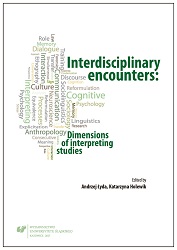Evolution, trends and gaps in public service interpreting training in the 21st century
Evolution, trends and gaps in public service interpreting training in the 21st century
Author(s): Carmen Valero-Garcés
Subject(s): Language studies, Language and Literature Studies, Theoretical Linguistics, Philology
Published by: Wydawnictwo Uniwersytetu Śląskiego
Keywords: interpreting; public service interpreting; PSI; interdisciplinary; PSI research; PSI training
Summary/Abstract: Since the first Critical Link Conference in Geneva Park, Canada in 1995, Public Service Interpreting (PSI) has experienced a dramatic change in both theory and practice. National and international conferences, seminars, courses, and workshops all around the world, as well as an ever-growing flow of publications have made it possible for practitioners, trainers, and researchers to get together and discuss their views and exchange ideas. During this journey, new tendencies, disciplines, and tools have been applied in research and training. This article will focus on training. Research on training shows a certain evolution in teaching that goes from a prescriptive approach based on the insistence of the “interpreting is interpreting” trope – while usually disregarding translation – to a much more interdisciplinary, realistic, and fuller understanding of the complexities of this matter based on a specific sociocultural moment. It is my intention to demonstrate these evolutions, trends, and gaps in PSI training, followed by some suggestions for the future.
Book: Interdisciplinary encounters: Dimensions of interpreting studies
- Page Range: 31-47
- Page Count: 17
- Publication Year: 2017
- Language: English
- Content File-PDF

